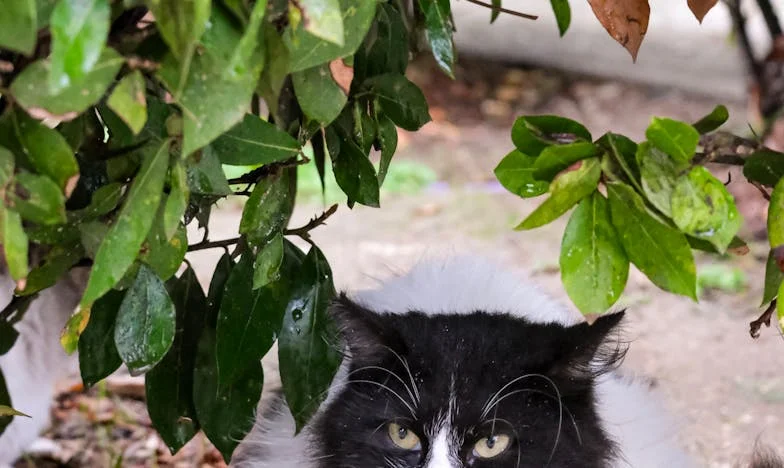When Roles Reverse: My Paternity Leave That Changed Everything
“I can’t do this anymore, Mark. I just can’t.” Emily’s voice shook as she stood at the kitchen counter, her fingers trembling around a chipped coffee mug. The baby monitor crackled in the background, the faint wail of our seven-month-old son, Noah, slicing through the tense silence. I stood frozen, the morning sun glinting off the cereal bowl in my hand, suddenly aware that my world was about to shift in a way I hadn’t planned for.
It was supposed to be simple. I’d take paternity leave, give Emily the break she desperately needed after months of sleepless nights and the slow creep of postpartum depression. I’d step in, do my part. We’d be a team, stronger than ever. But as I watched her shoulders crumple inward, I realized I had underestimated everything: her suffering, my capacity, the fragility of our marriage.
“I’ll talk to my boss today,” I said quietly, setting the bowl in the sink. “We’ll switch. You’ll go back to work. I’ll stay home with Noah.”
Emily’s eyes shone with relief and guilt, a storm of emotions I couldn’t untangle. “Are you sure? Work’s been…”
“We’ll be fine,” I lied, because I wanted her to believe it. Because I wanted to believe it too.
The next week, after a rushed handoff of passwords and baby routines, Emily stepped back into her old life, corporate badge clipped to her purse, lipstick on for the first time in months. I watched her from the doorway, Noah perched on my hip, a sticky, teething mess. For a moment, I envied her—her adult conversations, the sharpness of her mind, the chance to remember who she was before motherhood swallowed her whole.
Day one was a disaster. Noah screamed through his nap, peas ended up smeared in his hair, and I changed a diaper so foul I gagged. The house was a wreck by noon. I texted Emily photos of Noah smiling, but not the ones where I sat on the bathroom floor, head in my hands, wondering if I’d made a colossal mistake.
By week two, I’d developed a grudging rhythm—morning walks, endless laundry, a running tally of bottles and naps. But the isolation gnawed at me. Friends from work sent memes and jokes, but their lives spun on without me. The moms at the playground gave me polite smiles, their conversations floating above my head like a language I’d never learned. I missed my old life, my sense of purpose, the feeling that I was good at something.
Emily, for her part, seemed lighter. She came home flushed from meetings, stories tumbling out. But I could sense the distance growing between us. Her guilt lingered in the way she hovered over Noah, the way she apologized for missing bedtime. At night, we lay side by side in bed, scrolling through our phones, the silence thick with everything we weren’t saying.
One night, after a particularly rough day—Noah’s fever, my frayed nerves—I snapped. “You have no idea how hard this is,” I blurted as Emily tiptoed in, late from a work dinner. “I’m trying, but it’s… it’s just—”
She stiffened. “You think I didn’t know? You think I wasn’t drowning every day?”
“I didn’t,” I stammered, shame flooding me. “I didn’t know, Em. I’m sorry.”
We sat in the dark, the baby monitor hissing between us, the weight of our words pressing down. I finally saw her—not just as my wife, or as Noah’s mother, but as a person gasping for air, just as I was.
But the cracks were there. I started resenting little things—how she seemed energized by work, how I felt invisible. She resented my clumsy attempts to keep order, the way I minimized her pain out of my own insecurity. We argued over chores, over Noah’s bedtime, over who got to shower first.
One afternoon, as I chased Noah through a maze of plastic toys, my father called. “Never thought I’d see my son playing house,” he joked, then quickly backpedaled when he heard the exhaustion in my voice. “You’re doing good, Mark. Really.”
Was I? I wasn’t so sure. The world still expected me to be the provider, the rock. But inside, I was unraveling. I thought about the men at my old office, the way they’d joked about paternity leave. “Enjoy your vacation!” they’d laughed, never knowing the truth: that this was the hardest, loneliest work I’d ever done.
Emily and I tried counseling. We sat in a beige office, speaking in careful sentences, learning to listen. We talked about expectations, about giving each other grace. Sometimes I wondered if love was enough to bridge the gap between intention and reality, between what we wanted and what we could give.
Months passed. I survived. We survived. Emily’s laughter slowly returned; mine did too, though it was quieter, more tentative. I learned to ask for help. To forgive myself for not being perfect. To see parenthood not as a competition, but as an act of survival and love. Our marriage was battered, but not broken.
Now, sometimes, in the brief quiet after Noah falls asleep, Emily and I will look at each other across the table, a little older, a little wiser, still a little afraid. “We’re doing our best,” she says. I squeeze her hand, and for the first time, I believe it.
I wonder: How many of us are just trying, silently, to keep it together? How do we learn to forgive ourselves—and each other—when good intentions aren’t enough?
